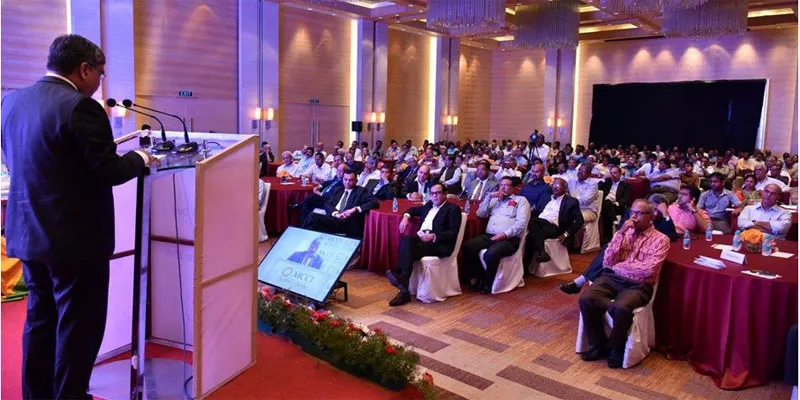Experience never gets old: 179-year-old Madras Chamber opens up to startups
Last week one of India’s oldest and most vibrant chambers, Madras Chamber of Commerce & Industry (MCCI), had on its founder’s day announced the setting up of a Startup Entrepreneurial Ecosystem (SEE). The program will mainly focus on the manufacturing and non-IT sectors, providing those startups with mentoring as well as access to business networks.

Speaking on the motivation for the 1836-born chamber to take this unprecedented step, its President, S. G. Prabhakharan had two reasons to share.
1) The chamber has several large industries and successful professionals as its members. Their wealth of knowledge will come handy to budding entrepreneurs, especially for those startups in the manufacturing and services sectors. He felt the chamber had the necessary talent and bandwidth to help these sectors – where 80% of startups come from. This startup support will be done through SEE boards, which will comprise chamber members with experience in several fields.
2) The chamber’s president, a chartered accountant by qualification, also shared his personal motivation to support startups. He spoke about his younger days during the early 80s, when he would travel to hill stations and invariably end up with no place to stay. The few guest houses were always full, whereas the surrounding bungalows were usually locked. He later found out that those bungalows were owned by wealthy people who visited them only for a week or two in a year. It then struck him why not a resort that could be owned by many people, and that’s how the idea behind the Sterling Holiday Resorts was born in 1984.
Unlike the many entrepreneurship meets I’ve been privy to, the audience of this event had many elders as well as some second and third-generation businessmen and women. Here are some more compelling event shares by experienced business leaders:
- Two-thirds of India’s population is below the age of 35, yet we have a situation where one-third of the population is trying to control the two-third. We control them without believing that they too can be successful.
- The best way to orient a young entrepreneur into one’s family business is to let her or him startup anything of their choice and succeed or fail, and all the while learn during their journey.
- The expansion of the acronym ‘SIR,’ used by British Knights, was ‘Servants in Readiness’ or ‘Slaves in Readiness’ – here we address everybody as SIR. Why not let people call their bosses by their first names, like the Americans do.
- One should keep asking oneself ‘How am I relevant?’ The reason why a 179-year-old chamber exists today is because it had always stayed relevant with the times.
- The biggest social change one can do is to look at entrepreneurs as change agents and not as businessmen. After all they are the ones bringing a lot many people into the mainstream by job creation, and not our donations or charity.
- ‘Mass customisations’ of products are the future. Sixty per cent of customers will require varied requirements, which Indian entrepreneurs being ‘flexible, lean, and customisable’ are in a better position to offer, compared to China.
- Pure digital businesses like Flipkart, Myntra, Snapdeal, etc, have played their part. In the future, businesses like manufacturing and supply chain will play a big role, although we will still need the web to sell.
- We need to be cautious about not letting valuations drive the startup world. The buzz should be moderated to bring in more focus on the sustainability part.
- Let’s help startups by providing them with market access and the networks we have built. As big industries we can also do our bit by choosing startup guys as vendors and giving them some orders to prove themselves.
- In those frustrating moments when there’s nobody there to give you comfort, you need somebody to lean on emotionally and to have the same confidence to get back. As mentors just ‘being available’ can make a huge difference.
There was so much profoundness shared in just a couple of hours of the event, one can imagine how much more value can such experience add to the startup community. It may well be time for younger entrepreneurs to start engaging with the more experienced and vice versa.
(Also read: What startups in India can learn from Singapore’s founder Lee Kuan Yew?)
We at YourStory have always believed in being part of a more inclusive startup world, as evident by our TechSparks meet-ups at various tier-2 and tier-3 cities, and the launch of our content in several regional languages.
Have entrepreneurial gems from experienced folks? Tell us







